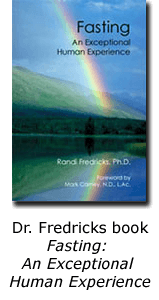Postpartum Depression
San Jose Counseling and Psychotherapy
 The postpartum period is a time of extreme vulnerability to a disorder called postpartum depression or postnatal depression.
The postpartum period is a time of extreme vulnerability to a disorder called postpartum depression or postnatal depression.
Up to eighty percent of women experience some degree of depression after giving birth. Fortunately, depression is treatable with depression treatment.
This is a brief period during which women are tearful or extremely sensitive and may be more moody. Sometimes sleep is a problem. The “blues” usually resolve without treatment within 1 to 2 weeks of giving birth.
Like other types of depressive disorders, postpartum depression is treated with antidepressants and/or psychotherapy. Postnatal depression is distinguished from the baby blues both by its duration and the debilitating effects of indifference the mother has about herself and her children.
Signs and Symptoms of The Baby Blues
Many women experience baby blues – an extremely common reaction following delivery – it usually appears suddenly on the third or fourth day. Research has suggested that around 80 percent of new mothers experience this feeling and it is mild enough that it typically does not cause any serious problems.
The symptoms generally include brief periods of sadness with some crying, irritability, and anxiety. These feelings are actually not uncommon and are considered part of postpartum baby blues.
Signs and Symptoms of Postpartum Depression
About one in 10 new mothers experience some degree of postnatal depression. These complications usually occur within just days after the delivery, and can occur even a year later.
The signs and symptoms of postpartum depression are the same as the symptoms of depression that occurs at other times in life. Along with a sad or depressed mood, the new mother may have the following symptoms:
- Sluggishness
- Fatigue
- Exhaustion
- Feelings of hopelessness or depression
- Disturbances with appetite and sleep
- Agitation or irritability
- Eating more or less than normal
- Low self esteem and feelings of shame
- Lack of interest in usual activities
- Difficulty concentrating
- Reduction in usual amount of energy
- Confusion
- Problems doing tasks at home or work
- Increase in anxiety which may include panic attacks and OCD
- Thoughts of death or suicide
- Difficulty sleeping
 Someone with postpartum depression may experience significant levels of disability including the inability to care for herself or her baby. Additionally, she may become afraid to be alone with her baby, have negative feelings towards the child, worry intensely about the baby, or have little interest in the child.
Someone with postpartum depression may experience significant levels of disability including the inability to care for herself or her baby. Additionally, she may become afraid to be alone with her baby, have negative feelings towards the child, worry intensely about the baby, or have little interest in the child.
Postpartum depression is characterized by intense anxiety or irrational fears, sometimes accompanied by panic attacks. Additionally, some new mothers also develop obsessive compulsive disorder (OCD). They may have repetitive thoughts, including harming the baby. They may avoid the baby to alleviate these thoughts, and they may feel anxious.
Who is At Risk for Postpartum Depression
Postnatal depression is caused by changes in hormones and women with severe premenstrual syndrome are more likely to suffer from postpartum depression. A past history of non-postpartum mood disorder and a family history of mood disorder increases the risk of postpartum depression.
Additionally, the risk of postpartum episodes with psychotic features is particularly increased for women with prior postpartum mood episodes, and elevated for those with a history of mood disorders. Once a woman has a postpartum episode with psychotic features, the risk of recurrence is 30-50% with each delivery.
Depression Treatment for Postpartum Depression
Women need to be taken seriously when these symptoms occur. Generally depression treatment is a combination of therapy and medication can reduce these symptoms. The ideal treatment plan usually begins with a thorough medical evaluation to rule out physiological illness.
Once this is done, the new mother will have a psychiatric evaluation and medication may be prescribed along with psychotherapy.
As with other types of depression, treatment needs to continue even after the person feels better to prevent relapse. If treatment is stopped too soon, symptoms often recur quite quickly.

Depression Counseling and Therapy for the Silicon Valley including San Jose, Los Gatos, Saratoga, Sunnyvale, Campbell, Cupertino, Los Altos, Mountain View, and Santa Clara.




